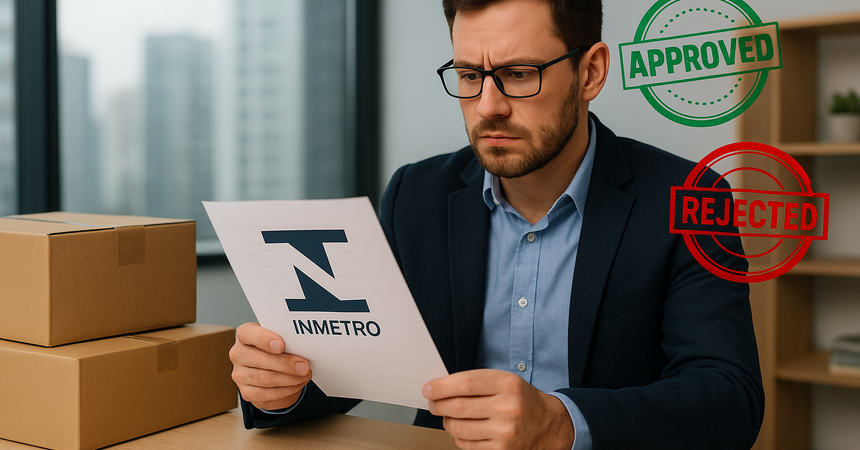The Brazilian market is vast and promising, but its certification system is notorious for complexity and unpredictability. The regulator INMETRO (Instituto Nacional de Metrologia, Qualidade e Tecnologia) oversees product quality and safety, and without its certification, most goods simply won’t pass customs.
Even large international companies often make mistakes that cost them months and significant amounts of money. Let’s look at the most common pitfalls.
1. Incorrect product category
Every product in Brazil is classified under specific technical regulations. Misclassification leads to unnecessary testing or rejection of registration.- Common case: electronics with a radio module classified only as “household equipment,” ignoring wireless communication requirements.
2. Ignoring Portuguese translation
All technical documentation and manuals must be in Portuguese. A common mistake is submitting only English versions. This halts the process and forces exporters to order urgent (and expensive) translations.3. Underestimating the role of a local representative
To obtain an INMETRO certificate, a Brazilian legal representative is required. Many foreign companies attempt to file independently and lose time because without a local “certificate holder,” registration is impossible.4. Delays in testing
INMETRO labs are often overloaded. Testing may take 3–6 months, especially for climate tests (Amazon Region) or EMC checks. Exporters’ mistake: planning deliveries without time buffers.5. Incorrect product labeling
Even small mistakes (e.g., missing certificate number or incorrect units of measurement) can lead to a sales ban for the entire batch. Products must be pre-checked for INMETRO labeling requirements.6. Ignoring climatic factors
Brazil’s tropical climate puts extreme stress on products: high humidity, corrosion, temperature fluctuations. Many companies certify products “by standard schemes,” but in reality, they fail quickly, leading to recalls and penalties.7. Incomplete documentation package
A classic error: submitting only test reports while omitting risk assessments or declarations of conformity. Each missing item triggers additional requests and delays.Conclusion
Certification in Brazil is not just a technical process but a strategy. Mistakes in documents, translations, category selection, or test planning are costly. Companies that anticipate INMETRO specifics and work with local representatives save months and thousands of dollars.Contact WorldWideBridge – we know all the pitfalls of Brazilian certification and will guide your product through the process without wasted time or money.
